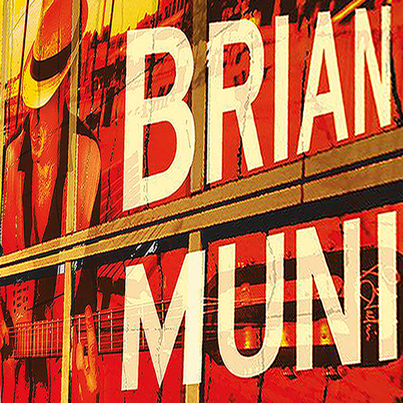The MuniMethod
Brian Muni: Occupational Therapist
Watch Brian at Work:
Songs to Help Kids Grow
Dressing Skills
Table Etiquette & Feeding Skills
Socialization Skills
4 Songs to Make Us Think, Feel, and Move
2 More Videos!
Come to the Table (10 min. Documentary)
The Woodchuck Song
Brian welcomes your questions and comments here:
LINKS TO OTHER RESOURCES:
Art Beyond Sight (Curricula and Song lyrics):
Dressing for Success
http://www.artbeyondsight.org/teach/dressing-for-success.shtml
Come to the Table
http://www.artbeyondsight.org/teach/cttt-songs.shtml#overview
Standing Tall
Institute for Music and Neurologic Research – Founded by famed neurologist, Dr. Oliver Sacks, and music therapist, Dr. Connie Tomaino, the Institute promotes research and education on using music to assist the “awakening and healing” of individuals with a wide range of neurological conditions including strokes, trauma, dementia, Alzheimer’s disease, and Parkinson’s disease. https://www.imnf.org/
Nordoff-Robbins Center for Music Therapy - Groundbreaking music therapy clinic founded by special education teacher, Clive Robbins, and classical composer, Paul Nordoff, with settings in New York, London, and Sydney. https://steinhardt.nyu.edu/nordoff
RESEARCH ON USING MUSIC WITH CHILDREN
Bazyk, S., Cimino, J., Hayes, K., Goodman, G., & Farrell, P. (2010). The use of therapeutic listening with preschoolers with developmental disabilities: A look at the outcomes. Journal of Occupational Therapy, Schools, & Early Intervention, 3(2), 124-138. https://doi.org/10.1080/19411243.2010.491013
Cook, A., Ogden, J., & Winstone, N. (2018) The impact of a school-based musical contact intervention on prosocial attitudes, emotions and behaviours: A pilot trial with autistic and neurotypical children. Autism, 23(4), 933-942. https://doi.org/10.1177/1362361318787793
Deboth, K. K., Olszewski, C. A., Roberge, N., & Owen, M. (2020). Interprofessional occupational therapy and music: Therapy piano keyboard intervention for preschoolers with visual impairments: A non-randomized pilot case study. Journal of Occupational Therapy, Schools, & Early Intervention, 14(1), 39-58. https://doi.org/10.1080/19411243.2020.1787293
Eidevall, K., & Leufstadius, C. (2014). Perceived meaningfulness of music and participation in a music group among young adults with physical disabilities. Journal of Occupational Science, 21(2), 130-142. https://doi.org/10.1080/14427591.2013.764817
Geist, K., & Geist, E. A. (2012). Bridging music neuroscience evidence to music therapy best practice in the early childhood classroom: Implications for using rhythm to increase attention and learning. Music Therapy Perspectives, 30(2), 141-144. https://doi.org/10.1093/mtp/30.2.141
Kirschner, S., & Tomasello, M. (2010). Joint music making promotes prosocial behavior in 4-year-old children. Evolution and Human Behavior, 31(5), 354–364. https://doi.org/10.1016/j.evolhumbehav.2010.04.004
MacRae, A. (1992). Should music be used therapeutically in occupational therapy? The American Journal of Occupational Therapy, 46(3), 275-277. https://doi.org/10.5014/ajot.46.3.275
Standley, J. M., & Hughes, J. E. (1997). Evaluation of an early intervention music curriculum for enhancing pre-reading/writing skills. Music Therapy Perspectives, 15(2), 79-86. http://dx.doi.org/10.1093/mtp/15.2.79
